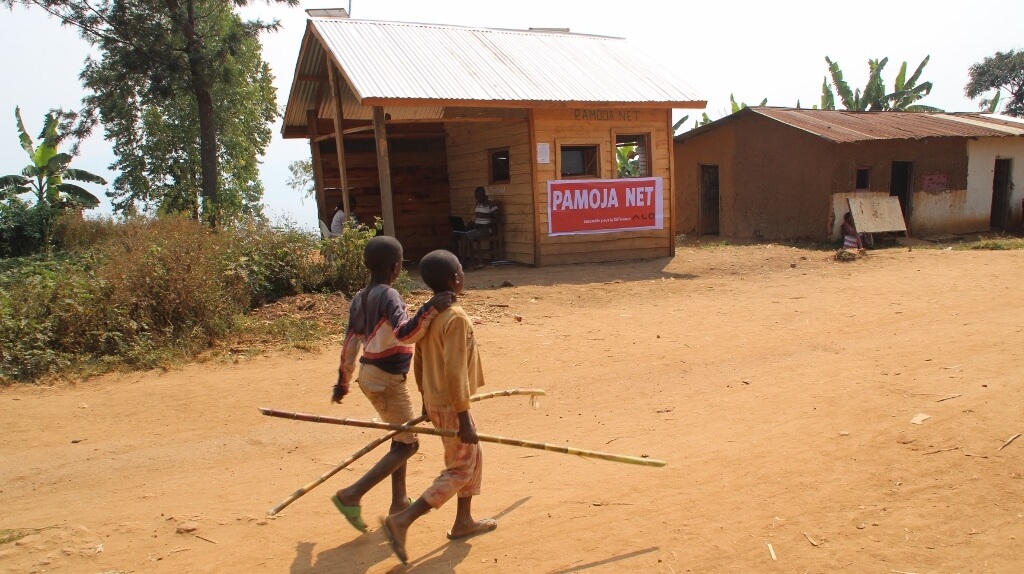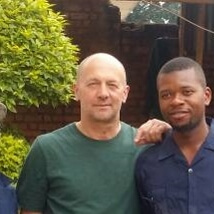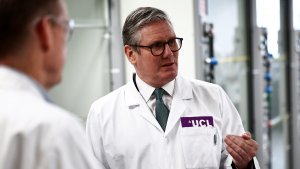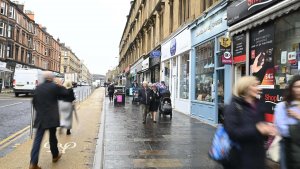How the DRC's unique entrepreneurial thumbprint is creating a tapestry of new business opportunities.
Six Lessons From Working In The Democratic Republic Of Congo
How the DRC's unique entrepreneurial thumbprint is creating a tapestry of new business opportunities.

Ensemble Pour La Difference is a social business incubator that empowers entrepreneurs in Congo, particularly Eastern Congo, to drive positive social and economic change.
We advocate entrepreneurialism for the greater good and the development of social businesses as a means to rebuild a society.
The Congolese are naturally entrepreneurial. They know their country is lagging far behind and that progress must be fair and shared amongst everyone. They understand the role and value of Ensemble Pour La Difference and the response to our work is always positive.
As a test bed for innovation there’s no place on earth like Congo. There are no legacy processes, no legacy systems, it’s a mobile-first environment and some of the constraints are unimaginable to people in the West – so we really have to adjust to a particular situation.
What are these adjustments and what can they teach us about running successful innovation projects?
1. Understanding the reality of daily life will ensure engagement
Daily life in Congo is labour intensive and evolves slowly. Money is hard to come by and finding food for the evening meal is the main priority. Tomorrow is another day and few people think about the future, such are their problems today.
Products and services must integrate into these circumstances or they will have no relevance. Of course, products and services should help advance the situation, but they will only be successful if they are anchored in today’s needs and circumstances.
There is no flexibility and no energy to engage with a product or service that does not take this approach.
2. Co-creation is a powerful tool
When your possessions have a total value of $10 and someone asks you to choose between solution A and solution B, it’s hard. You have never had the luxury of choosing between A and B and your ability to evaluate one against the other and choose the best option has never been developed. You want both.
In Western society we have many different varieties of tuna fish or insurance policies and we are adept at making fine distinctions. But in a resource-poor situation the decision making is crude and often based simply on cost. Why buy a pair of (good) sandals for $5 when you can buy a (lower quality) pair for $4?
Even so, intelligent choices have to be made when designing solutions and we have found that the poorest Congolese people are perfectly capable of making them, but they need to be guided using a collaborative, co-creation process.
This helps people develop their own inherent capacity for evaluation and prioritisation so that they can make the most of the resources at their disposal.
3. People say they know even when they don’t. So, check.
In difficult circumstances people will say anything to get an advantage - financial support, a job, a consultation with a doctor, a useful contact. It’s natural and we’re all used to it (in Europe as much as anywhere). But in Congo people often believe that what they are saying is true and legitimate.
They may say they have a degree in technology or experience in accounting, but if we dig deeper, the limitations become apparent. Many colleges teach technology but have no computers. It’s possible to learn about computer networks and never touch an actual router.
It’s possible to work in finance but have never prepared management accounts or done an audit. The point is not that people do not have capacity, but that it’s important to validate what this means in reality and not make pre-conceived assumptions
4. You get one chance to make an impact. Be true to your promise.
Companies, governments and people in Europe regularly make and break promises. Rightly or wrongly, we have become so used to it and so disillusioned with parts of our society that we have the capacity to deal with the loss and disappointment and move on.
There is no such capacity in Congo. People are suffering at a level that is almost unimaginable in the West and a promise - or even an implied promise - is a commitment that people internalise and hang on to at a deep level.
If the promise is not delivered, the Congolese are devastated. There is little love or respect for people and companies who break promises and any future relationship with the Congolese will be compromised.
5. Ideas are easy. Implementation is difficult.
People who are good at generating ideas are valuable to a company and to society in general. But in Congo they waste a lot of time and energy because most ideas cannot be implemented. People can think their idea is the critical component of a solution when in fact it’s the least important component.
We have been approached to provide training over Skype – in essence a great idea – but less than 10% of the population have access to the internet. We have been approached to install refrigeration – also great - but there is next to no electricity.
When we came up with the idea to install a Wi-Fi network on a remote island – we got the mast, hammer and nails and installed it ourselves. Ideas really are easy. Making them work is much harder.
6. Throwing money at a problem is not the solution.
There is very little money in Congo. People are not used to working with large sums and if a business or donor tries to implement a project with an excessive budget, the system can’t absorb it and some of the money will go to waste - a bit like dry ground cannot absorb heavy rain and the excess water then causes problems.
Money can be invested in machinery that is never used, or in services that can’t be maintained, or it might attract corruption. It’s best to invest in phases at a speed that the economy and culture can absorb. This is a fundamental principle that must be understood and implemented at ground level if money is to be used effectively.
We believe the lessons we have learned could be applied to innovation projects across the world and could lead to a higher success rate in the creation of meaningful products and services.
Mike Beeston, Founder, Ensemble Pour La Difference.
Thanks for signing up to Minutehack alerts.
Brilliant editorials heading your way soon.
Okay, Thanks!

